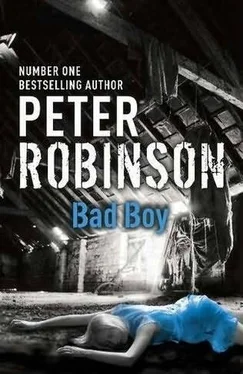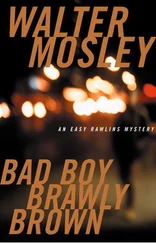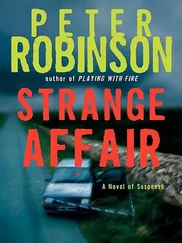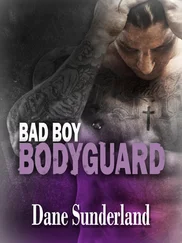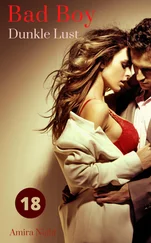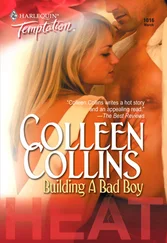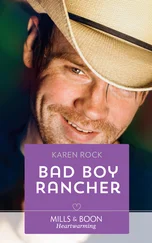Annie’s first sensation was of pain; her second was panic. There was something stuck down her throat, and she felt as if it was choking her. As she fought to control her racing heart she could hear the buzzing and beeping of the machines surrounding her. Okay, she told herself, opening her eyes and slowly adjusting to the dim light. Be calm. You’re in hospital. Hooked up to machines. She had thought someone was with her-Ray, her father-but she soon realized that she was actually alone.
She couldn’t remember how she had got there, and she only had the poorest recollection of why, but she was alone in a room, her bed slightly raised, propping her at a thirty degree angle. There were tubes coming out of her chest as well as the one down her throat, and IVs hooked up to a catheter on the back of her hand. Pouches of blood, plasma and clear liquid hung on stands beside the bed. Beyond them was an illuminated screen which told her that her blood pressure was 125/91 and her heart rate 102. Even as she watched, the automatic sphygmomanometer strapped to her upper arm activated itself. Her BP was now 119/78, heart rate 79. She tried to relax. That was better, she thought. Not bad at all. But her throat still hurt and her breathing felt the same way it had under the ocean in her waking dream.
As she took stock of herself and her various aches and pains, needles and machines, she realized that one thing struck her above all others: she was still alive. Maybe she was dying, a machine doing her breathing for her, or maybe she had even died and been brought back, but right now she was alive. Her brain felt slow and heavy, as if it were stuffed with warm cotton wool, and her memory felt tenuous and flimsy, but it still worked. Her nose also seemed to be in the right place, ears, arms, legs and torso, too. What really hurt most of all were her chest and her back. Painkillers dulled some of it, but not enough. From her neck down to her stomach, front and back and inside, she felt as if she had been beaten black and blue by a giant cricket bat. Maybe she had been. Maybe that was why she was here. She could feel her toes, though, even wiggle them; and she could clench and unclench her hands, so she knew that her neck or her back weren’t broken.
Annie had a hazy sense of people going about their business outside her room, of muffled conversations, laughter and tannoy messages, but there was no clock, and she didn’t know where her watch was, so she had no sense of time, day or night. She lay there trying to calm the images of fear and panic that had first crowded her mind on her trip back from the underworld. She felt dreadfully thirsty and noticed a plastic cup of water on the bedside table, complete with a bendy straw, then she realized she couldn’t drink anything with the tube down her throat. Nor could she call out. Feeling the panic rise again, she looked for a bell or a buzzer, and finding a button, pressed it, but even as she did so, she became aware of people dashing into the room, and there was no doubt that one of them was Ray, bearded and disheveled as ever. She couldn’t speak, but her heart ached with love for him, and she was sure the tears streamed down her cheeks as she lay back, exhausted with her efforts, and waited for the doctor and nurses to take out the tube that was choking her.
EVERYONE IN the boardroom close to midnight that Thursday night was tired, but none of them would entertain any ideas of sleep until Annie’s shooter had been brought to justice, and until Banks’s daughter was safe. Banks and Winsome were present, along with Gervaise, and Doug Wilson, Geraldine Masterson, Vic Manson, Stefan Nowak and several uniformed officers from Traffic, Patrol and Communications. They had already been cheered by the news that the fingerprints Vic Manson had taken from the photograph The Farmer had handled matched those on the magazine of the Smith & Wesson automatic found in Erin Doyle’s possession. It confirmed the link they already suspected between The Farmer, Jaff McCready and the murder of Marlon Kincaid. But there was no sign of Justin Peverell on the electoral rolls.
“I think we’re getting to the stage now where everyone’s feeling just a bit twitchy,” Gervaise said when Banks and Winsome had finished telling everyone about their visits to Victor Mallory and The Farmer. “There are just so many sides to the equation.” She glanced at Doug Wilson and Geraldine Masterson. “What did you get from West Yorkshire Homicide and Major Enquiries?”
Wilson indicated that Geraldine Masterson should do the talking. “Not a lot, ma’am,” she said, clearly nervous to find herself performing in front of such a distinguished audience for the first time. “Detective Superintendent Quisling was able to confirm that the body of Marlon Kincaid was discovered beside a bonfire close to Woodhouse Moor, Leeds, in the early hours of sixth November, 2004.”
“By a jogger?” Banks asked. “A dog walker?”
“No, sir. Someone had to douse the flames, make sure the fire was out. Health and Safety.”
“So Health and Safety turn out to have their uses after all,” said Banks. “Miracles will never cease. Carry on.”
Geraldine Masterson gave him a nervous smile and continued. “The body was partially burned, but examination at the scene soon showed he’d been shot. Twice. You already know about the bullet and casing comparisons matching. Mr. Quisling said it was hard to track down everyone at the bonfire. It had been quite a large party, apparently, with live music, dancing, lots of drink. At first the people putting out the fire thought it was just some unfortunate drunk who had fallen down in the wrong place.”
“Drugs were involved, too, no doubt?” Gervaise suggested.
“Yes, ma’am.”
“Was Ian Jenkinson any more forthcoming than Mr. Quisling?”
Geraldine Masterson cast a sideways glance at Doug Wilson, who was looking more like Harry Potter than ever tonight, wearing what looked like his school tie and blazer. With her long red hair, green eyes, high forehead and pale skin, Geraldine Masterson could easily have passed for one his fellow Hogwarts pupils, but she hadn’t been around long enough to be given a nickname yet. Annie Cabbot, who knew about these things, had once suggested that she resembled Elizabeth Siddal, a famous pre-Raphaelite beauty and artists’ model immortalized by Dante Gabrielle Rossetti and other painters, but that was hardly nickname material.
Doug Wilson adjusted his glasses and picked up the story. “Believe it or not, Ian Jenkinson is studying for the ministry at the moment. Wants to be a vicar. C of E. Gone quite religious. Not a fanatic or anything, but it’s a bit of an about turn from his past.”
“I suppose we should thank heaven that there is such a thing as rehabilitation,” said Gervaise. “Go on.”
“According to Jenkinson, who went down from Eastvale to the bonfire and who knew the victim, Marlon Kincaid was bragging a bit that he’d been warned off the territory by some bloke called The Farmer, but he wasn’t planning on paying any attention to any country bumpkin. Marlon wasn’t a big player, apparently, just sold a bit of pot and E to the student population now and again, but he thought it was his patch. Word had reached The Farmer, who’d been assuming he had the whole scene locked up and under control.”
“So he wanted to make an example of Kincaid?”
“I guess so, ma’am.”
“Did Jenkinson witness the shooting?”
“He says not.”
“Do you believe him?”
“Yes, ma’am. It’s not just the churchy bit. He really does seem to genuinely regret his past-the drugs, the dealing. There were a lot of loud fireworks going off that night, he said, a lot of loud music, and a lot of drunkenness. People passed out and fell asleep right there on the ground. There was a good chance that nobody would have either heard the shot or noticed that Kincaid was dead.”
Читать дальше
